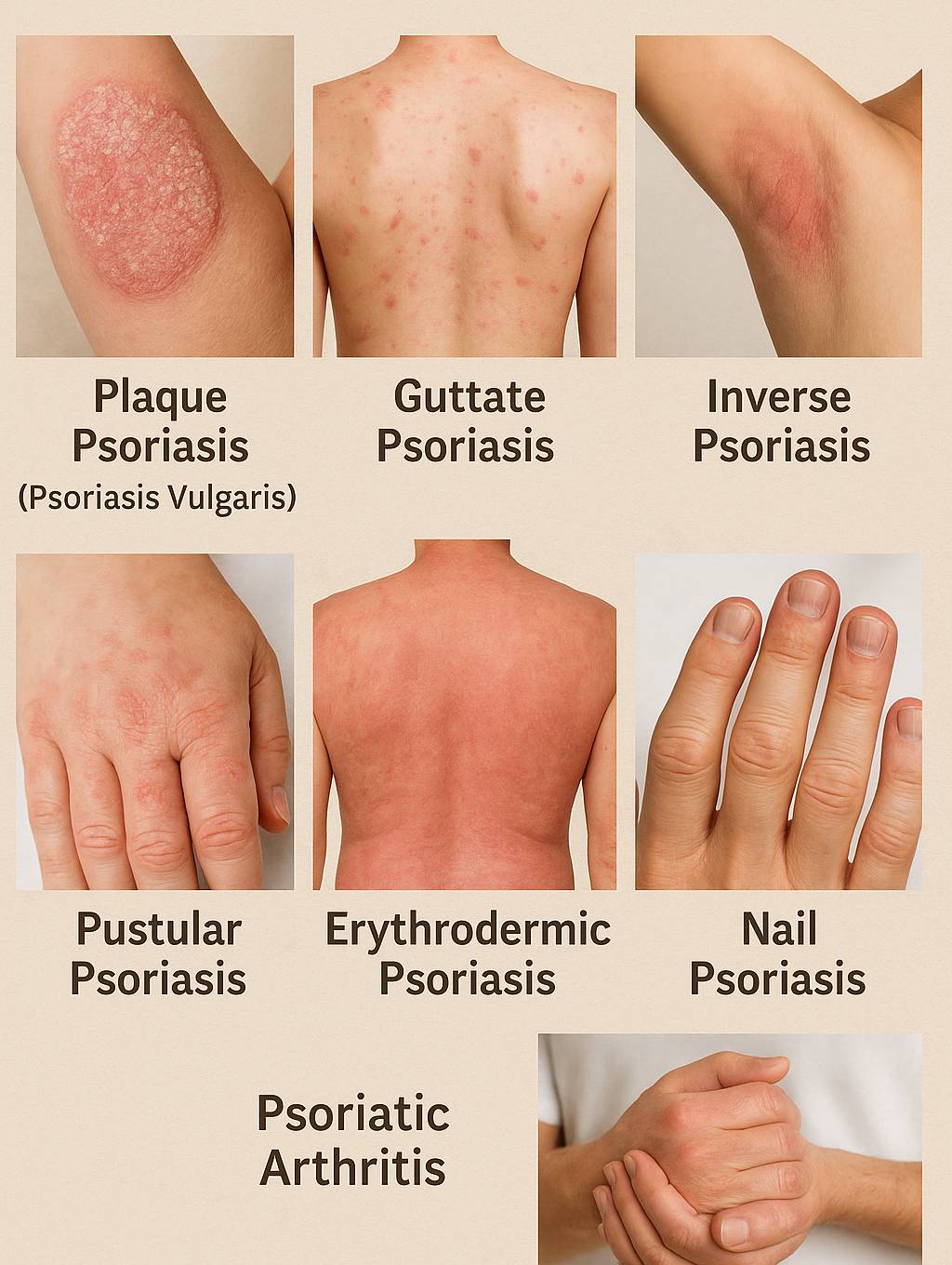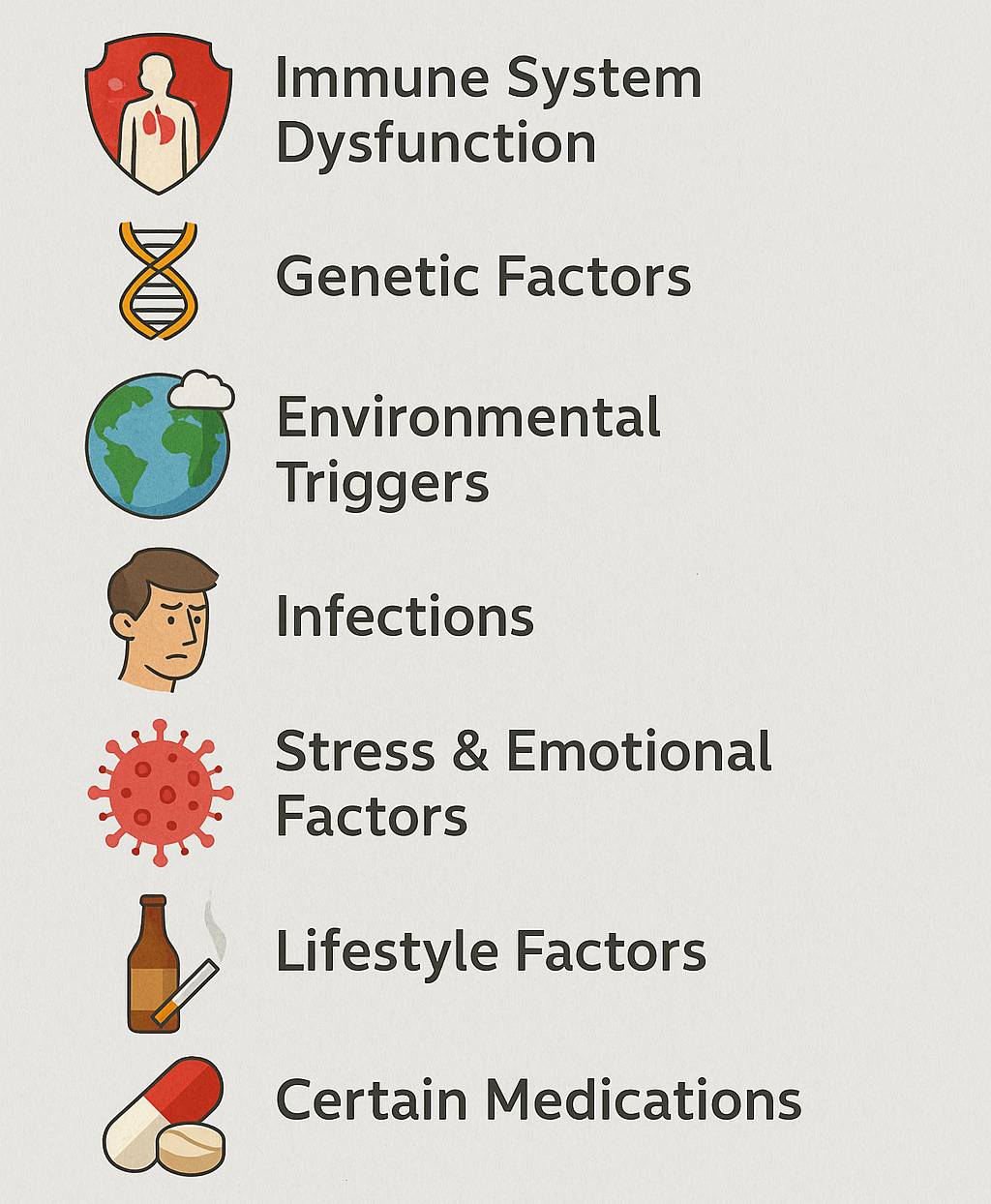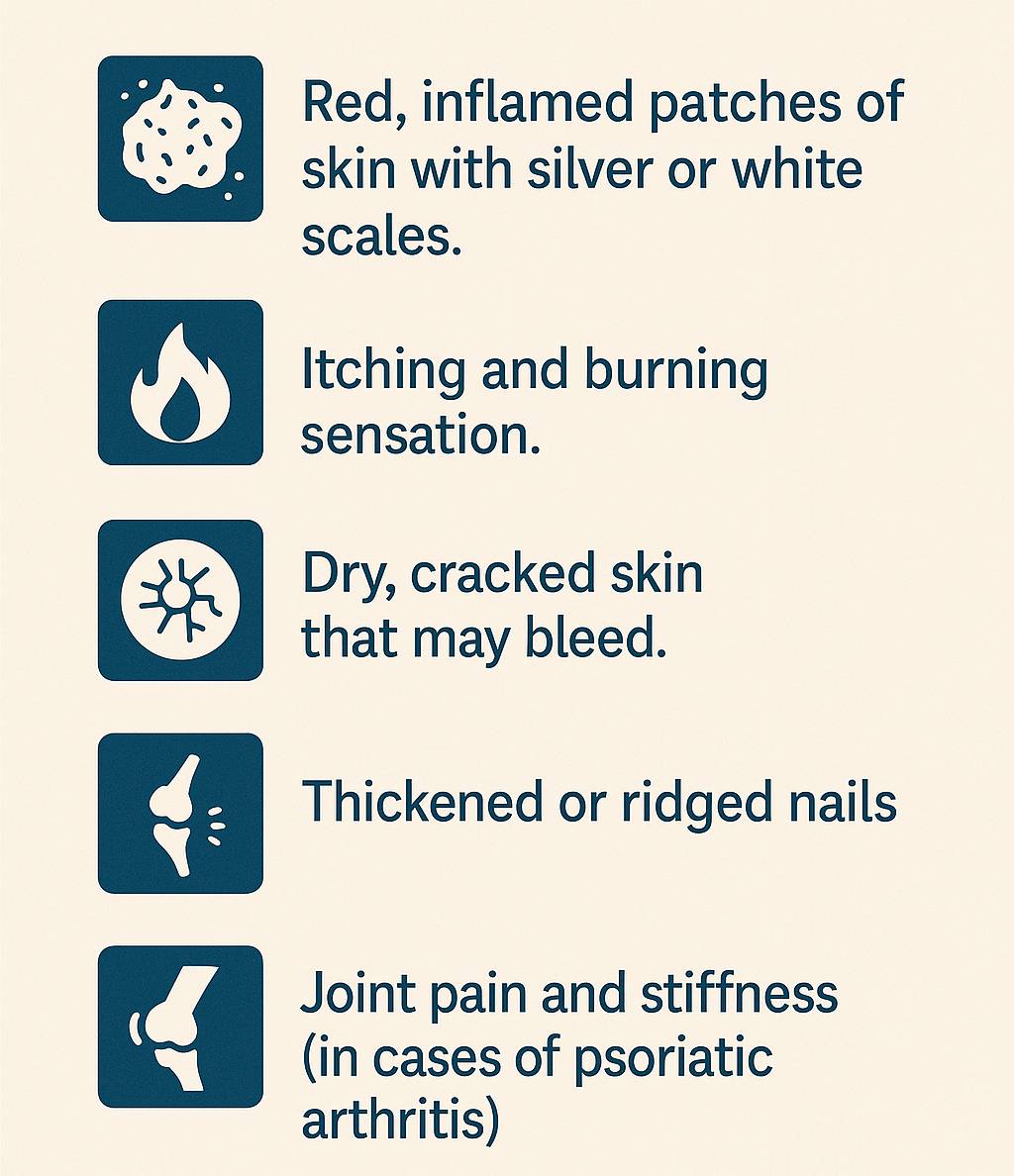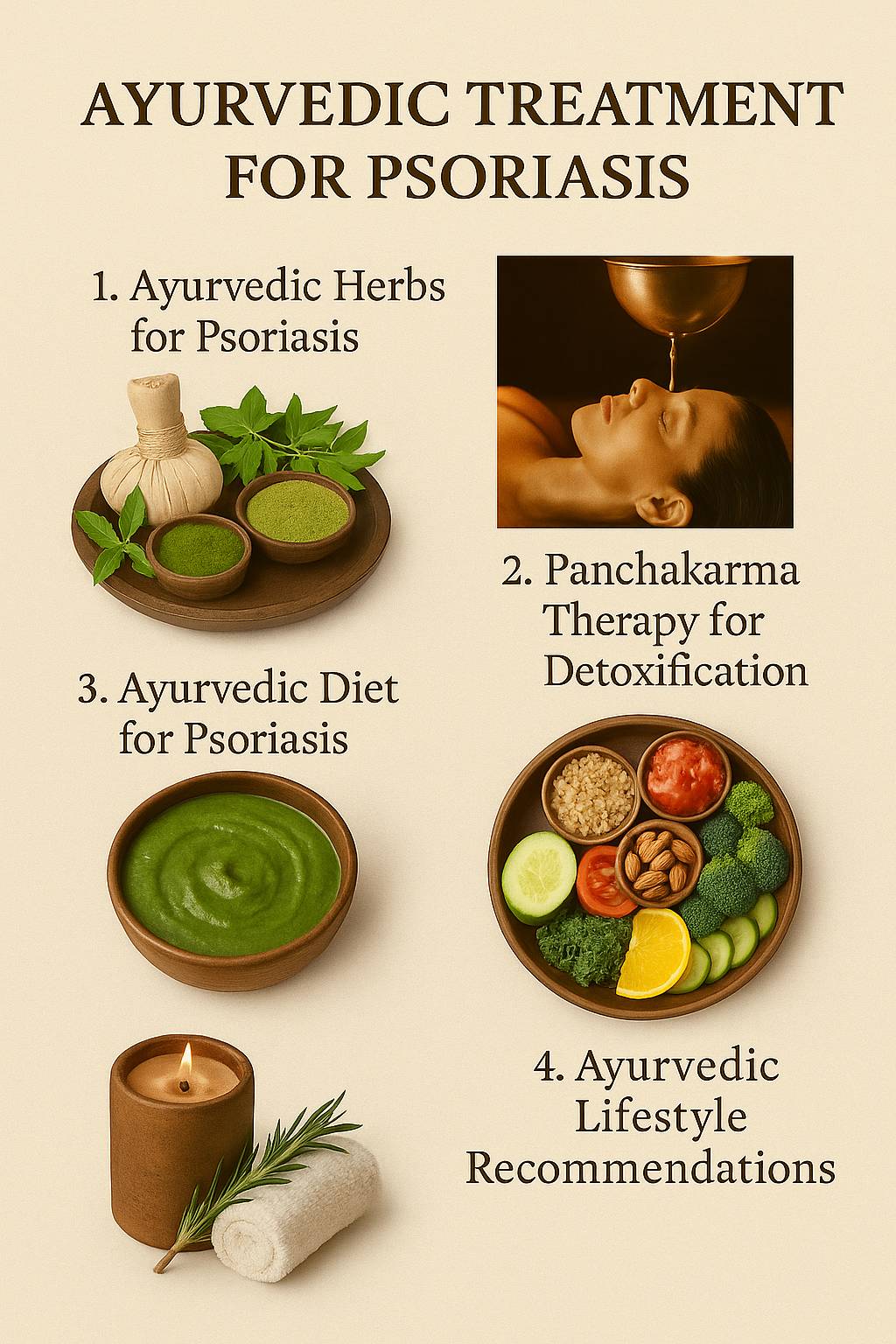What is Psoriasis?
Psoriasis is a chronic autoimmune skin disorder that causes the rapid buildup of skin cells, leading to scaling, inflammation, redness, and itching. This condition occurs when the immune system mistakenly triggers an overproduction of skin cells, which accumulate on the surface and form thick, scaly patches.
Psoriasis is not contagious, but it can be hereditary and is often linked to other health issues like arthritis, diabetes, and heart disease. While modern medicine offers symptomatic relief, Ayurveda provides a holistic approach to managing psoriasis by addressing its root cause.
Types of Psoriasis
- Plaque Psoriasis (Psoriasis Vulgaris) – The most common type, causing thick, red patches covered with silvery-white scales.
- Guttate Psoriasis – Small, red, drop-shaped spots, often triggered by infections like strep throat.
- Inverse Psoriasis – Smooth, red, shiny lesions in body folds (under breasts, armpits, groin).
- Pustular Psoriasis – White pustules (blisters filled with pus) on red, inflamed skin.
- Erythrodermic Psoriasis – A rare but severe form causing widespread redness and severe itching.
- Nail Psoriasis – Affects fingernails and toenails, leading to pitting, discoloration, and crumbling.
- Psoriatic Arthritis – A combination of psoriasis and joint inflammation.


What Causes Psoriasis?
- Immune System Dysfunction – Overactive immune response leads to excessive skin cell production.
- Genetic Factors – Family history increases the likelihood of developing psoriasis.
- Environmental Triggers – Cold weather, dry air, and pollution can worsen symptoms.
- Infections – Bacterial and viral infections (such as strep throat) can trigger psoriasis flare-ups.
- Stress & Emotional Factors – High stress levels can aggravate psoriasis symptoms.
- Lifestyle Factors – Smoking, alcohol consumption, and an unhealthy diet can worsen psoriasis.
- Certain Medications – Beta-blockers, antimalarial drugs, and lithium can trigger psoriasis.
Signs and Symptoms of Psoriasis
- Red, inflamed patches of skin with silver or white scales.
- Itching and burning sensation.
- Dry, cracked skin that may bleed.
- Thickened or ridged nails.
- Joint pain and stiffness (in cases of psoriatic arthritis).

When to See a Doctor?
If you experience persistent skin irritation, scaling, or joint pain, consult a dermatologist or Ayurvedic specialist for diagnosis and treatment.
Ayurvedic Treatment for Psoriasis
- Neem – Natural blood purifier and reduces inflammation.
- Turmeric (Haldi) – Contains curcumin, which has anti-inflammatory properties.
- Aloe Vera – Soothes skin irritation and hydrates dry patches.
- Manjistha – Detoxifies blood and improves skin health.
- Guggulu – Reduces inflammation and promotes skin healing.
- Vamana (Therapeutic Vomiting) – Helps remove excess Kapha.
- Virechana (Purgation Therapy) – Cleanses excess Pitta.
- Rakta Mokshana (Bloodletting Therapy) – Removes toxins from the blood.
- Include: Fresh fruits, leafy greens, whole grains, nuts, and seeds.
- Avoid: Spicy, sour, fried, and processed foods.
- Drink warm water to flush toxins.
- Consume turmeric and ginger for anti-inflammatory benefits.
- Manage Stress: Practice yoga, meditation, and breathing exercises.
- Sunlight Therapy: Moderate sun exposure helps reduce symptoms.
- Moisturize Regularly: Use herbal oils like coconut oil, neem oil, or kumkumadi oil.
- Avoid Triggers: Identify and eliminate foods or habits that aggravate psoriasis.

Frequently Asked Questions (FAQs)
No, psoriasis is not contagious and cannot be spread through physical contact.
Ayurveda focuses on managing psoriasis by addressing its root cause. While a complete cure depends on individual cases, Ayurvedic treatments can significantly reduce flare-ups and improve skin health.
Results vary, but some people notice improvements within weeks, while chronic cases may take months.
Avoid spicy, oily, dairy, and processed foods. Opt for fresh, natural foods rich in antioxidants.
Yes, stress is a major trigger for psoriasis flare-ups. Ayurveda recommends meditation and pranayama.
Neem oil, coconut oil, and Mahamarichyadi oil help reduce dryness and itching.
Conclusion
Psoriasis is a long-term skin condition that can be effectively managed with Ayurvedic treatments. Consult an Ayurvedic expert for personalized treatment and long-term skin health.
